'Money talks': Federal environment minister calls on businesses, banks to fight climate change
Story by David Thurton • Yesterday
Environment Minister Steven Guilbeault says businesses and financial institutions around the world need to do more to fight climate change — and climate finance needs to be on the agenda for the next United Nations climate summit.
Guilbeault spoke about the need to mobilize private international climate capital on Wednesday in Brussels, where he announced that Ottawa is allocating $450 million to the world's largest climate fund — the Green Climate Fund — increasing its previous pledge in 2019 by 50 per cent.
Ottawa's most recent contribution consists of $180 million in loans and $270 million in grants.
"We need more money, and we need more money from all sources," said Guilbeault.
It's widely acknowledged that richer countries and international businesses based there have been responsible for the bulk of global carbon emissions.
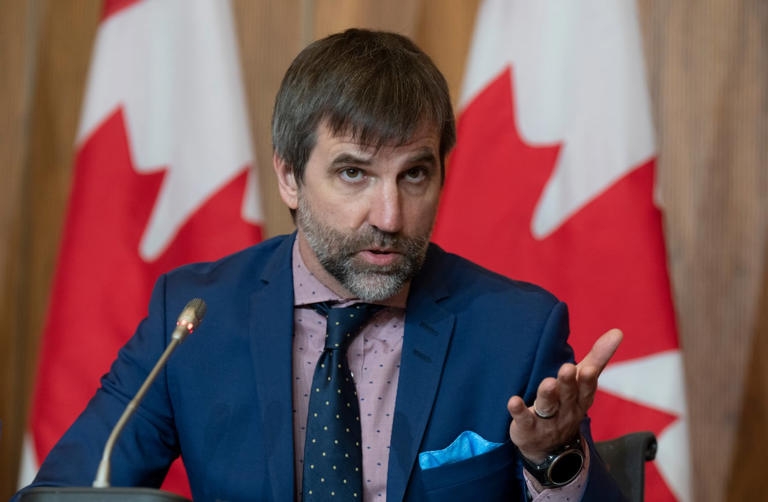
Minister of Environment and Climate Change Steven Guilbeault responds to a question during a news conference in Ottawa on June 14, 2023.
(Adrian Wyld/The Canadian Press)© Provided by cbc.ca
The $450 million for the Green Climate Fund comes from the $5.3 billion the federal government has earmarked for international climate finance over five years.
The Green Climate Fund supports developing countries' efforts to transition to low-carbon, climate-resilient economies and protect nature.
"Money talks, so we encourage other contributors, traditional and new, to use this second replenishment of the Green Climate Fund to raise their ambition," Guilbeault said.
He specifically called on the private sector to step up.
"We clearly know that there's not enough public money to meet the challenge of fighting climate change or adapting to climate change, which is where the private sector capital mobilization comes into play," Guilbeault said.
The $450 million for the Green Climate Fund comes from the $5.3 billion the federal government has earmarked for international climate finance over five years.
The Green Climate Fund supports developing countries' efforts to transition to low-carbon, climate-resilient economies and protect nature.
"Money talks, so we encourage other contributors, traditional and new, to use this second replenishment of the Green Climate Fund to raise their ambition," Guilbeault said.
He specifically called on the private sector to step up.
"We clearly know that there's not enough public money to meet the challenge of fighting climate change or adapting to climate change, which is where the private sector capital mobilization comes into play," Guilbeault said.
Related video: Rise in investment in clean & green energy sector (WION)Duration 6:58 View on Watch
The private sector must be "held accountable" for dragging its heels on climate action in Canada and globally, said Julie Segal, senior manager of climate finance at Environmental Defence, a Canadian-based environmental organization.
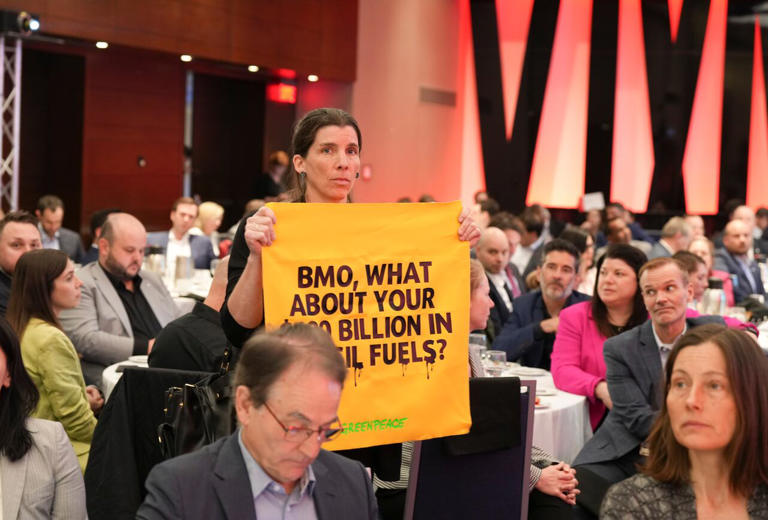
Protesters from Greenpeace interrupt a luncheon speech by Gregoire Baillargeon (not shown), president of BMO Financial Group Quebec, at the Montreal Chamber of Commerce in Montreal on May 10, 2023
. (Christinne Muschi/The Canadian Press)© Provided by cbc.ca
Segal said Canadian banks are still investing billions of dollars annually in "climate-damaging activities" like fossil fuel production.
"So they are under-investing, particularly Canadian financial institutions, in climate solutions and over-investing in climate pollution," she said.
If the Canadian government got serious about encouraging private investments in efforts to fight climate change, Segal said, it would introduce rules and regulations for Canada's financial institutions to help shift Canadian money away from high-emitting sectors.
World Bank needs to do more: Guilbeault
Guilbeault meets Thursday with his ministerial counterparts from China and the European Union in Brussels for the Ministerial Meeting on Climate Action (MoCA).
These talks are focused on implementing the Paris Agreement. They're also meant to help wealthier countries iron out their concerns ahead of the UN's upcoming COP 28 climate conference in Dubai.
Guilbeault said one of the outcomes of November's COP28 should be a "firm commitment" to getting financial institutions like the World Bank and the International Monetary Fund to address the existential threat of climate change while preventing millions from slipping into poverty.
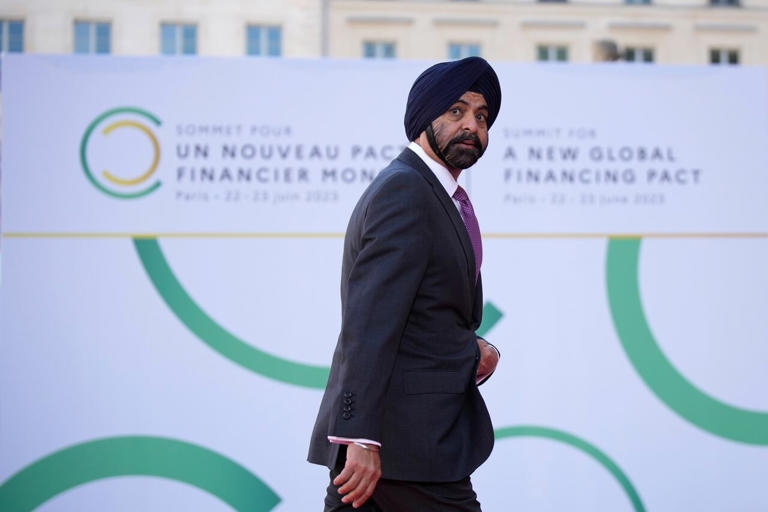
World Bank President Ajay Banga arrives for the closing session of the New Global Financial Pact Summit on June 23, 2023 in Paris.
Segal said Canadian banks are still investing billions of dollars annually in "climate-damaging activities" like fossil fuel production.
"So they are under-investing, particularly Canadian financial institutions, in climate solutions and over-investing in climate pollution," she said.
If the Canadian government got serious about encouraging private investments in efforts to fight climate change, Segal said, it would introduce rules and regulations for Canada's financial institutions to help shift Canadian money away from high-emitting sectors.
World Bank needs to do more: Guilbeault
Guilbeault meets Thursday with his ministerial counterparts from China and the European Union in Brussels for the Ministerial Meeting on Climate Action (MoCA).
These talks are focused on implementing the Paris Agreement. They're also meant to help wealthier countries iron out their concerns ahead of the UN's upcoming COP 28 climate conference in Dubai.
Guilbeault said one of the outcomes of November's COP28 should be a "firm commitment" to getting financial institutions like the World Bank and the International Monetary Fund to address the existential threat of climate change while preventing millions from slipping into poverty.

World Bank President Ajay Banga arrives for the closing session of the New Global Financial Pact Summit on June 23, 2023 in Paris.
((AP Photo/Lewis Joly, Pool))© Provided by cbc.ca
In a recent joint op-ed with Australia's climate change and energy minister, Guilbeault wrote that the efforts of multilateral institutions to finance climate-related measures at affordable rates have been "patchy and at times inaccessible to the nations that need it most."
Patricia Fuller, who served as Canada's ambassador for climate change from 2018 to 2021, said discussions have been happening for years about boosting access to climate finance for developed countries.
"I think the new aspect here is just the levels of debt distress in developing countries, which unfortunately coincide to a great degree with the impacts of climate change," Fuller said.
The United Nations recently estimated that 52 developing countries — home to half of the world's population living in extreme poverty — suffer from severe debt problems. Almost half of these countries spend 20 per cent or more of their public revenue on servicing external public debt.
Fuller said the issue isn't whether multilateral institutions must step up their climate finance, but rather how they do it. The question that needs to be answered, she said, is whether these institutions reallocate existing funds — or countries like Canada contribute more money to expand their balance sheets.
In a recent joint op-ed with Australia's climate change and energy minister, Guilbeault wrote that the efforts of multilateral institutions to finance climate-related measures at affordable rates have been "patchy and at times inaccessible to the nations that need it most."
Patricia Fuller, who served as Canada's ambassador for climate change from 2018 to 2021, said discussions have been happening for years about boosting access to climate finance for developed countries.
"I think the new aspect here is just the levels of debt distress in developing countries, which unfortunately coincide to a great degree with the impacts of climate change," Fuller said.
The United Nations recently estimated that 52 developing countries — home to half of the world's population living in extreme poverty — suffer from severe debt problems. Almost half of these countries spend 20 per cent or more of their public revenue on servicing external public debt.
Fuller said the issue isn't whether multilateral institutions must step up their climate finance, but rather how they do it. The question that needs to be answered, she said, is whether these institutions reallocate existing funds — or countries like Canada contribute more money to expand their balance sheets.
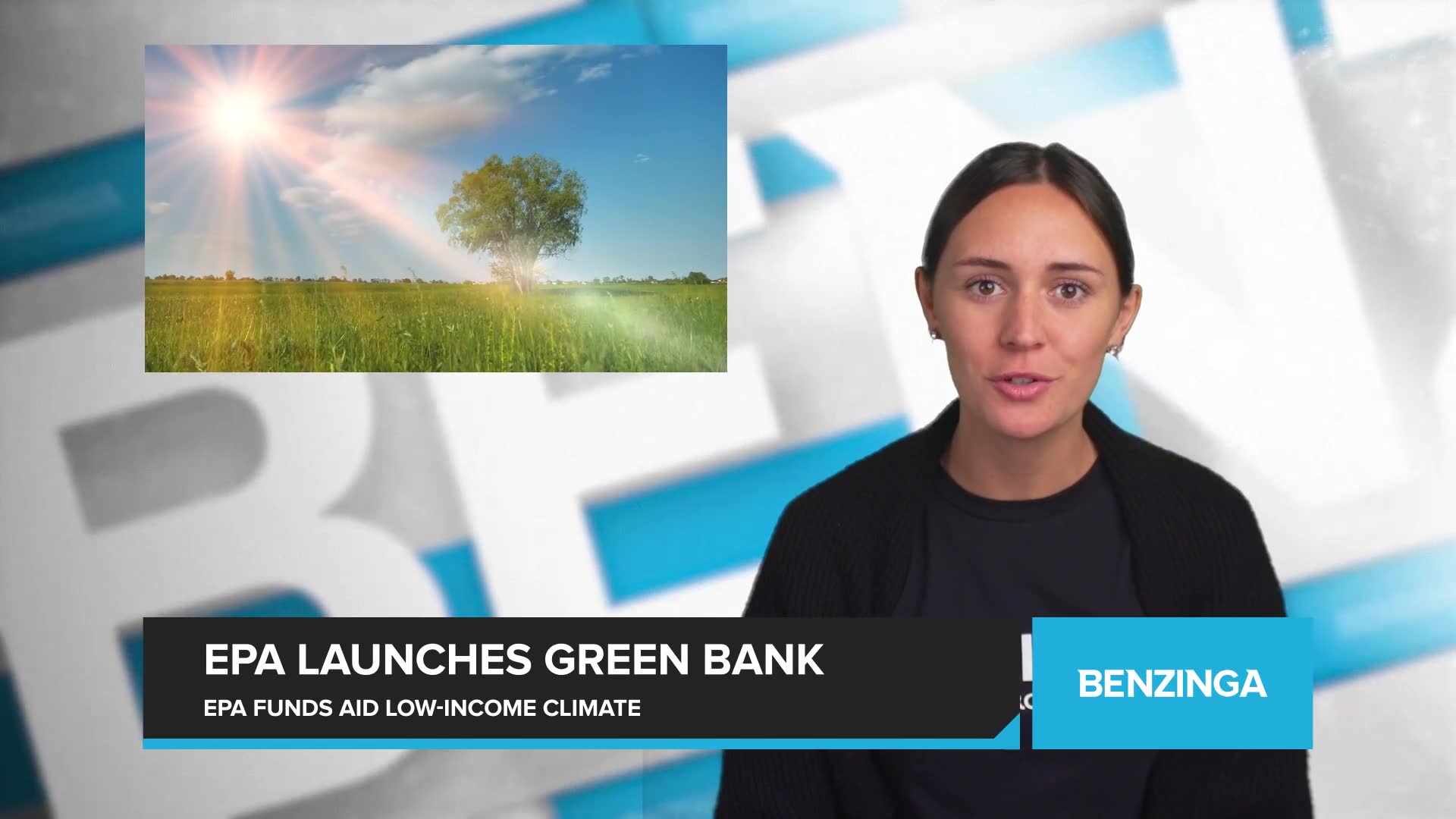
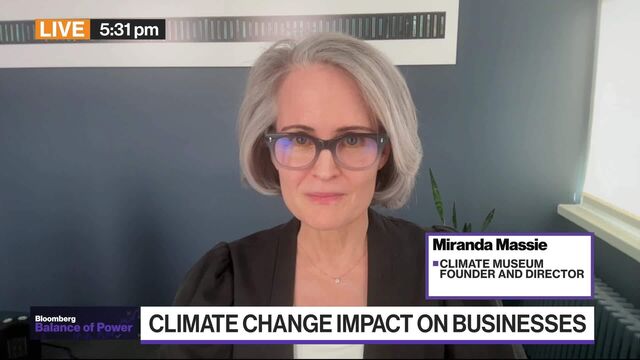

No comments:
Post a Comment